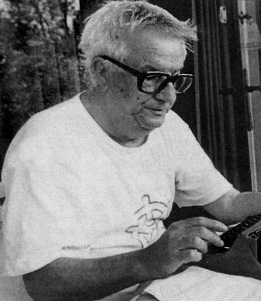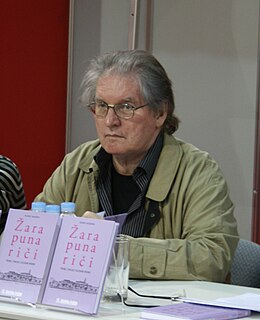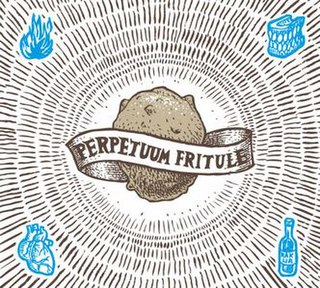Related Research Articles

The Macedonian music refers to all forms of music associated with North Macedonia. It share similarities with the music of neighbouring Balkan countries, yet it remains overall distinctive in its rhythm and sound.
Turbo-folk is subgenre of contemporary pop music with its origins in Serbia, that initially developed during the 1980s and 1990s, with similar music styles in Bulgaria (chalga), Romania (manele) and Albania (tallava). It is a fusion genre of popular music, blending Serbian folk music with other genres: such as pop, rock, electronic and some hip-hop.
Feral Tribune was a Croatian political weekly magazine. Based in Split, it first started as a political satire supplement in Nedjeljna Dalmacija before evolving into an independent satirical weekly in 1993. It became a popular political weekly in the 2000s before ceasing publication in June 2008.
Dobroslav Paraga is a Croatian right-wing politician. He was first president of the Croatian Party of Rights, after party was reestablished in 1991. In 1993 he founded the Croatian Party of Rights 1861 following a political split from Anto Đapić.

Slobodna Dalmacija is a Croatian daily newspaper published in Split.
Zlatko Kramarić is a Croatian liberal politician from Osijek.

Croatia Records is the largest major record label in Croatia, based in Zagreb (Dubrava).

Miljenko Smoje was a Croatian writer and journalist.
Mate "Mišo" Kovač is a Croatian recording artist. He is the best selling artist from Croatia, with well over 20 million records, cassettes and compact discs sold to date, and is often regarded as one of the most popular musical performers from Southeastern Europe.
Tonči Huljić is a Croatian musician, songwriter and music producer.
Branimir "Johnny" Štulić is a Yugoslav singer-songwriter, musician and author, best known for being the frontman of the popular Yugoslav rock group Azra. He is known for his charismatic stage performances and inspiring song lyrics that often combined rock poetry with a strong sense for social commentary, which is the cause for his becoming a cult figure.
Zdenko Runjić was a Croatian songwriter. In his long career, he established himself as one of the most prolific and most popular songwriters of former Yugoslavia and Croatia.

Igor Mandić was a Croatian writer, literary critic, columnist and essayist. According to Croatian historian Slobodan Prosperov Novak, Mandić was the most important and the most versatile Croatian newspaper writer of the second half of the 20th century. His polemic texts have marked a Yugoslav publicist epoch of the 1960s and 1970s. Known for his fresh, sharp writing style and contrarian views, he has been dubbed "the master of quarrel".
Alka Vuica is a Croatian singer, lyricist and TV presenter. Her musical style can be described as a mixture of pop and local folk.
Handcuffs (Lisice) is a Croatian film directed by Krsto Papić. It was released in Yugoslavia in 1969.

Perpetuum Fritule is the fifth album by the Croatian hip hop / rap rock band The Beat Fleet and their first live album. It was recorded at the Močvara club in Zagreb on 7 November 2009 and the album was released in July 2010. It was their first release for Dallas Records label, after they left Menart Records and signed for Dallas in 2009.
Zlatko is a South Slavic masculine given name. The name is derived from the word zlato meaning gold with hypocoristic suffix -ko common in South Slavic languages.
Zlatko Bourek was a Croatian Jewish film director, screenwriter, production designer, cartoonist and expert on Jewish culture.
Metak was a Croatian rock band. It was founded in Split, then Yugoslavia, and disbanded in 1981. Their song, "Da Mi Je Biti Morski Pas", was a mega hit, later covered by another Split band, Osmi Putnik, and it also became a movie of the same name. They released two albums, U Tetrapaku and Ratatatatija.
Mirko Krstičević is a Croatian musical composer. He is a regular member of the Croatian Composer Society and the Croatian Society of Film Workers. He was the founder and bassist of the band METAK.
References
- ↑ "ZLATKO GALL: "GLAZBENI LEKSIKON"". Archived from the original on September 25, 2008. Retrieved December 21, 2008.
- ↑ "Zlatko Gall - "Rock enciklopedija", prošireno izdanje". rirock.com (in Croatian). Retrieved October 14, 2019.
- ↑ "Zlatko Gall". hrvatskodrustvopisaca.hr (in Croatian). Croatian Writers' Society. Retrieved March 23, 2019.
- ↑ C Baker (2006). "The Politics of Performance: Transnationalism and its Limits in Former Yugoslav Popular Music, 1999–2004" (PDF). Ethnopolitics. Taylor & Francis. 5 (3): 275–293. doi:10.1080/17449050600911075.